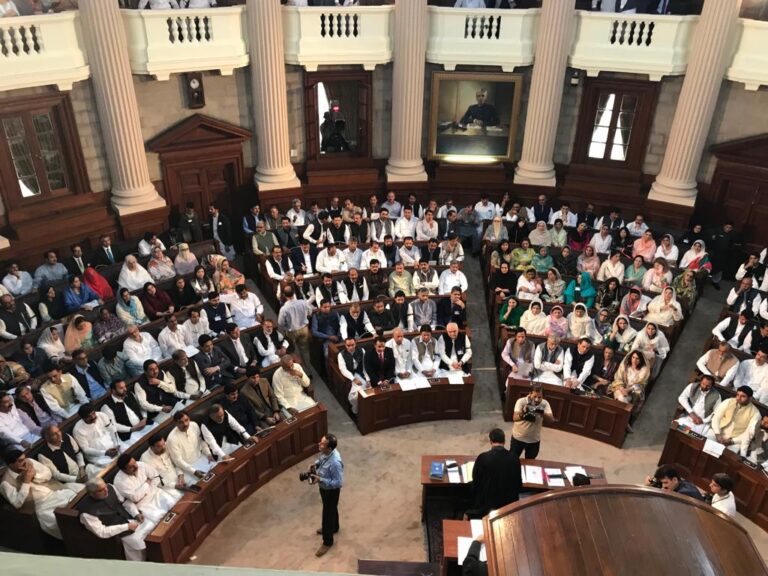Pakistan’s Punjab provincial assembly on Monday passed the Punjab Defamation Bill 2024, which allows for the establishment of a special tribunal to try individuals who draft, publish or disseminate fake news, local media outlet Pakistan Today reported. The bill was passed amid protests from opposition parties and concerns over freedom of speech.
The official purpose of the bill is to stop fake news, but some media outlets have described it as “draconian”.
According to the bill’s statement of purposes and grounds, any individual may make “false, misleading, or defamatory claims made in print, electronically, or through social media against any public official or private citizen.” You may be held responsible. According to the bill, cases in court will be decided within six months and defendants will be fined up to 3 million rupees.
Section 3 of the Act states: “Defamation is a civil wrong and a defamed person may bring an action under this Act even without proof of actual damage or loss. “If defamation is proven, general damages are presumed to have been suffered by the victim.” A person whose reputation has been defamed. ” General damages are defined in Section 2(k) of the Act and require a minimum of 3 million rupees.
This law was introduced on May 13, 2024 by Mian Mijtaba Shuja-ur-Rehman, Minister of Finance and Political Affairs. Both men are members of the Pakistan Muslim League (Nawaz), a centre-right liberal-conservative party. The bill sparked opposition from the Tehreek-e-Insaf political party as it could pose obstacles to freedom of speech in Punjab.
Before the bill was passed, media representatives met Punjab Information Minister Asma Bokhari and requested that the vote be postponed for a few days.
The Human Rights Commission of Pakistan (HRCP) said in a press release on Monday that it had serious concerns about the bill and labeled it a threat to freedom of expression. HRCP Chairman Asad Iqbal Butt said the concerns were mainly related to the 180-day deadline by which defamation claims must be resolved. It further said there was a risk that the order would be passed without the necessary due process, jeopardizing the court case.

